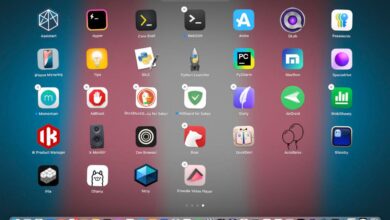Apple Intelligence Promises Better AI Security. Here’s How It Actually Works

Apple makes every production PCC server build publicly available for review so that people not affiliated with Apple can verify that PCC is doing (and not doing) what the company says it is doing and that everything is implemented correctly. All PCC server images are recorded in a cryptographically authenticated log, which is essentially an indelible record of signed requests, and each entry includes a URL to download that individual build. PCC is designed so that Apple can’t put a server into production without logging it. And in addition to providing transparency, the system also acts as an important enforcement mechanism to prevent bad actors from setting up malicious PCC nodes and redirecting traffic. If a server build isn’t logged, the iPhone won’t send queries or Apple Intelligence data to that server.
PCC is part of Apple’s bug bounty program, and researchers who find vulnerabilities or misconfigurations can be eligible for cash rewards. However, Apple says that no one has found any bugs in PCC since the iOS 18.1 beta launched in late July. The company admits that it has so far only provided tools to evaluate PCC to a select group of researchers.
Several security researchers and cryptographers told WIRED that Private Cloud Compute looks promising, but they haven’t spent much time digging into it yet.
“Building Apple silicon servers in the data center when we had never had any before, building a custom operating system to run in the data center was huge,” Federighi said. He added that “creating a trust model where your device would refuse to send a request to the server unless the signatures of all the software that the server was running were published to a transparent log was certainly one of the most unique elements of the solution—and absolutely critical to the trust model.”
For questions about Apple’s Partnership with OpenAI and ChatGPT IntegrationThe company emphasizes that the partnership is not protected by PCC and operates separately. ChatGPT and other integrations are disabled by default and must be enabled manually by users. Then, if Apple Intelligence determines that a request would be better served by ChatGPT or another partner platform, it will notify the user each time and ask whether to proceed. Additionally, people can use these integrations while already signed in to their account for a partner service like ChatGPT, or they can use them through Apple without a separate login. Apple said in June that another integration with Google’s Gemini is also in the works.
This week, Apple said that in addition to launching in US English, Apple Intelligence will be available in Australia, Canada, New Zealand, South Africa, and the UK in December. The company also said that additional language support—including Chinese, French, Japanese, and Spanish—will be coming next year. Does that mean Apple Intelligence will be allowed under EU regulations? AI Act And whether Apple can offer PCC in its current form in China is another question.
“Our goal is to deliver everything as ideally as possible to deliver the best capabilities to customers wherever possible,” Federighi said. “But we have to comply with regulations and there is uncertainty in certain environments that we are trying to sort out so we can get these features to customers as soon as possible. So we are trying.”
He added that as the company expands the ability to do more Apple Intelligence calculations on-device, it may use this as a temporary solution in some markets.
People with access to Apple Intelligence will be able to do much more than they could with previous versions of iOS, from writing tools to photo analysis. Federighi said his family recently celebrated their dog’s birthday with an Apple Intelligence–created GenMoji (which WIRED has seen and confirmed is very cute.) But while Apple’s AI is supposed to be as useful and invisible as possible, the risks to the security of the infrastructure that powers it are extremely high. So how are things going so far? Federighi sums it up without hesitation: “The rollout of Private Cloud Compute has been delightfully smooth.”




